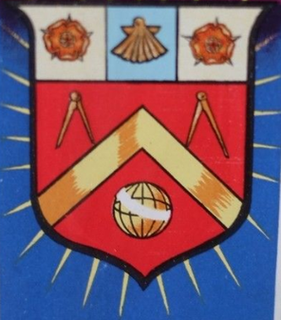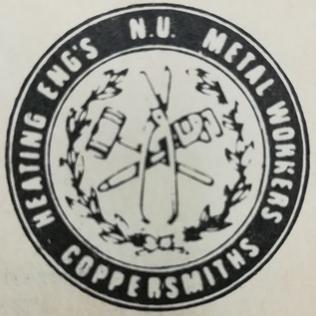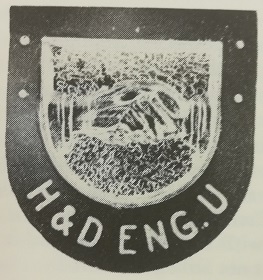Related Research Articles
The United Order of General Labourers was a trade union representing labourers, mostly in the construction industry, in the United Kingdom.
The National Amalgamated Union of Enginemen, Firemen, Mechanics, Motormen and Electrical Workers was a trade union in the United Kingdom. It represented stationary engine drivers and cranemen in a wide variety of industries, as well as less skilled workers in the electrical industry and miscellaneous workers.

The Amalgamated Society of Woodworkers (ASW) was a British trade union representing carpenters, joiners and allied trades. The ASW was formed in 1921 by the amalgamation of two smaller unions. It was itself merged into the Union of Construction, Allied Trades and Technicians in 1971.

The Confederation of Shipbuilding and Engineering Unions (CSEU), often known as the Confed is a trade union confederation in the United Kingdom.

The National Union of Sheet Metal Workers, Coppersmiths, Heating and Domestic Engineers was a trade union in the United Kingdom and Ireland.

The Amalgamated Textile Workers' Union (ATWU) was a trade union in Great Britain.
The Wire Workers' Union was a trade union in England which existed between 1840 and 1991. It represented workers involved in the manufacture of wire.
John Valentine Stevens was a British trade unionist and Lib-Lab politician.
The British Steel Smelters' Association (BSSA) was a trade union representing steel smelters and workers in related trades in Britain.
The Amalgamated Textile Warehousemen's Association was a trade union representing workers in the textile industry in the United Kingdom, principally in Lancashire.
The Amalgamated Society of Steel and Iron Workers of Great Britain was a trade union representing workers in iron- and steelworks, principally in Scotland.
The North East Lancashire Amalgamated Weavers' Association was a trade union federation of local weavers' unions in part of Lancashire in England, in the 19th century.
The Amalgamated Society of Operative Lace Makers and Auxiliary Workers, also known as the Lace Makers' Society, was a trade union representing laceworkers in England.
The General Union of Tinplate Workers was a trade union representing sheet metal workers in the United Kingdom.

The Heating and Domestic Engineers' Union (H&DEU) was a trade union representing a wide range of workers, particularly those involved with domestic pipework, in the United Kingdom.

The Birmingham and Midland Sheet Metal Workers' Society (BMSMWS) was a trade union representing sheet metal workers in the English Midlands.
The Oldham Provincial Card and Blowing Room and Ring Frame Operatives' Association was a trade union representing cotton industry workers in Oldham, Lancashire, in England. Long the largest union in the industry, it played a leading role in establishing a regional federation of cardroom workers.
The Lancashire Amalgamated Tape Sizers' Friendly Society was a trade union representing workers involved in the preparation of cotton in the Lancashire area of England.
The Rochdale Card and Blowing Room Operatives' Association was a trade union representing cotton industry workers in the Rochdale area of Lancashire in England.
James Charles Gordon was a British trade union leader and socialist activist.